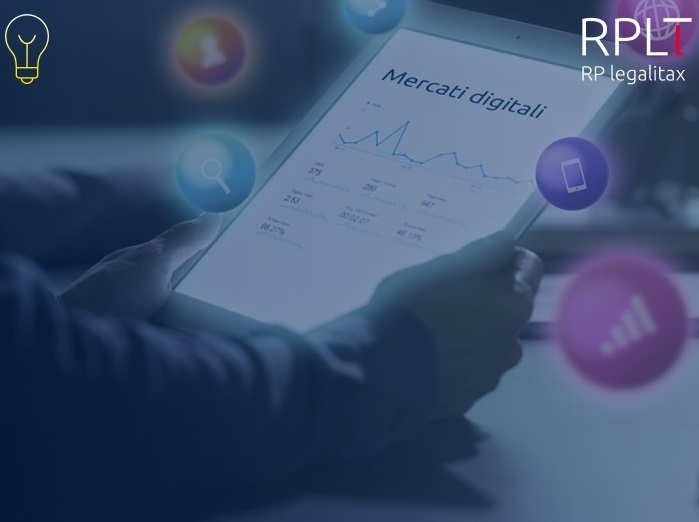Digital Platforms and Markets Updates: the latest news from the European Commission | #1

Digital Platforms and Markets: a review of the latest updates from the European Commission
Digital Markets Act: the Commission designates Booking as a gatekeeper and initiates a Market investigation on X (13 May 2024)
The European Commission has designated Booking as a gatekeeper under the Digital Markets Act for the online intermediation service Booking.com, deciding instead not to designate X Ads and TikTok Ads.
In parallel, the Commission has initiated proceedings to further assess X’s claim that, despite meeting the thresholds, X does not qualify as a significant gateway between businesses and consumers.
Digital Services Act: the Commission requests information from X on the reduction of resources allocated for content moderation (May 8, 2024)
The Commission requested clarifications from X following the publication of the latest transparency report, which revealed that X had reduced its content moderation team by nearly 20% compared to October 2023, limiting language coverage within the European Union from 11 to 7 EU languages.
Furthermore, the Commission is gathering more information on risk assessments and mitigation measures related to the impact of generative AI tools on electoral processes, the spread of illegal content, and the protection of fundamental rights.
Digital Services Act: the Commission initiates formal proceedings against Facebook and Instagram (April 30, 2024)
The European Commission has initiated formal proceedings to assess whether Meta, the provider of Facebook and Instagram, may have violated the Digital Services Act.
The alleged violations concern Meta’s policies on misleading advertising and political content, as well as the unavailability of an effective civic debate tool and real-time electoral monitoring ahead of the European Parliament elections.
The Commission also suspects that the mechanisms for reporting illegal content, user appeal mechanisms, and internal complaint mechanisms are not compliant with the DSA, and that there are deficiencies in providing researchers access to data.
The Commission launches whistleblowing tools for Digital Services Act and Digital Markets Act (April 30, 2024)
These tools will allow individuals to provide information, without the risk of repercussions, to identify illegal practices by very large online platforms (VLOP) or very large online search engines (VLOSE) designated under the DSA, as well as any violations of gatekeeper obligations under the DMA.
Whistleblowers can provide information anonymously or not, in an encrypted manner, in any official EU language, and in any relevant format (e.g., reports, notes, e-mail exchanges, data metrics, internal research, decisions).
Digital Markets Act: the Commission designates Apple’s iPadOS under the Digital Markets Act (April 29, 2024)
On September 5, 2023, the European Commission designated Apple as a gatekeeper for the iOS operating system, the Safari browser, and the App Store. On the same day, the Commission initiated an investigation to assess whether Apple’s iPadOS, despite not meeting the quantitative thresholds established in the DMA, constitutes an important gateway for commercial users to reach end users and should therefore be designated as a gatekeeper.
Following this positive assessment, Apple now has six months to ensure full compliance with the DMA obligations applied to iPadOS.
Digital Services Act: guidelines approved for VLOP and VLOSE providers on mitigating systemic risks to electoral processes (April 26, 2024)
The document contains guidelines to support providers of very large online platforms and very large online search engines in mitigating systemic risks related to electoral processes.
In addition to the obligation to implement reasonable, proportionate, and effective mitigation measures for risks associated with electoral processes under Article 35 of the DSA, VLOP and VLOSE providers must comply with all other relevant election obligations.
Digital Services Act: the Commission designates Shein as a very large online platform (April 26, 2024)
The Commission has formally designated Shein as a very large online platform (VLOP) under the DSA.
Shein is a platform that markets clothing products with an average of over 45 million active users per month in the European Union. Following the designation, Shein will have four months to comply with the more stringent rules provided by the DSA.
Digital Services Act: stress test for platforms ahead of elections (April 24, 2024)
The Commission conducted a simulation with platforms, Digital Services Coordinators, and civil society to verify resilience against electoral manipulation and interference risks in relation to the European elections.
The stress test included various fictitious scenarios based on past experiences with information manipulation and hybrid cybersecurity threats. The objective was to test the platforms’ readiness to handle manipulative behaviors that might occur ahead of the elections, including:
- “deep fake” or other AI tools to distort and manipulate audiovisual content;
- information manipulation through coordinated inauthentic behavior;
- suppression of opinions through harassment and threats online;
- intentional dissemination of false information about the electoral process to mislead voters;
- incitement to violence online based on manipulated information.
The stress test is part of a broader range of actions that the EU and Member States are adopting to ensure the integrity of elections and reassure citizens that the European elections will be free and fair, despite persistent attempts to manipulate civic discourse and the information environment by various actors, including foreign state actors.
Digital Services Act: adult websites Pornhub, Stripchat, and XVideos designated as very large online platforms (April 19, 2024)
The adult entertainment platforms Pornhub, Stripchat, and XVideos will have to comply with the more stringent obligations provided by the DSA.
These specific obligations include submitting risk assessment reports, implementing mitigation measures to address systemic risks related to service provision, complying with specific transparency obligations, including those related to advertisements, and providing data access to researchers.
Press releases from the European Commission and related official documents can be consulted at this address.






